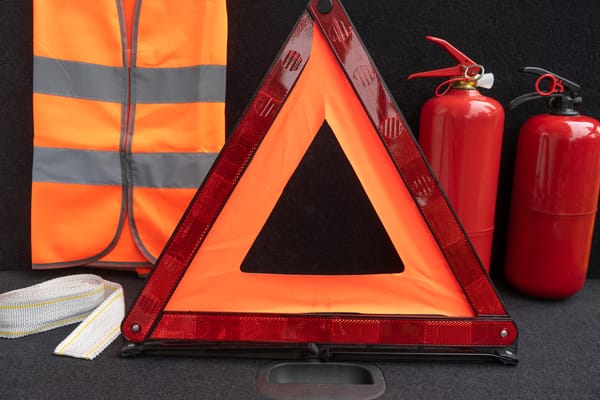7 key duties of a fire warden
The important role that a fire warden play in ensuring your business is prepared for a fire emergency should not be underestimated. Along with your emergency plan, fire wardens are an important risk control measure to ensure that your workplace is prepared should an emergency situation, potentially a fire, occur. Hence, businesses are advised to choose their fire wardens carefully.
7 key duties of a fire warden include:
- To assist in implementing and improving effective emergency procedures in your workplace.
- To help prevent emergencies by monitoring the adequacy of the fire risk control measures.
- To raise awareness with other staff about the fire hazards that exist in your workplace.
- To instruct workers in how to respond in an emergency.
- To lead the fire drills and real evacuation procedures – they must be familiar with all escape routes and exits from their designated area.
- To ensure all workers are accounted for during an evacuation.
- To assist all people in the workplace should an emergency occur, including assisting people with special needs, e.g. helping someone in a wheelchair to evacuate.
If the fire alarm is sounded, fire wardens have a duty to assist in the safe evacuation of workers and visitors from your workplace immediately, and to ensure that their designated area has been cleared.
During an evacuation, a fire warden needs to:
- direct everyone to leave the building using all the appropriate routes and exits (and not inappropriate exits such as lifts);
- check all accessible spaces in their area, including the bathroom, to make sure everyone has evacuated – this should be done on the way out of the building so that the fire warden isn’t putting themselves at risk by re-entering the evacuated area;
- close the doors to help to isolate the fire; and
- guide everyone to the assembly area and assist in checking that everyone has arrived safely.
Fire wardens should be provided with full authority to conduct an evacuation and your workers should know that the warden has this authority.
The fire warden should also check on a regular basis that fire exits are clear at all times.
So…do you have an assigned fire warden to carry out these functions in your workplace? And if not, should you?
Is there a legal requirement to have fire wardens?
While there is no requirement set out in legislation to have fire wardens, it is important to appoint fire wardens to ensure that you meet your health and safety obligations in relation to emergency plans and procedures.
Under the Australian Standard 3745-2010 Planning for emergencies in facilities (which was amended in 2014), there is a requirement for an emergency control organisation to be established and the appointment of chief and deputy fire wardens for a building or facility.
According to the Standard, an emergency control organisation is “a person or persons appointed…to direct and control the implementation of the facility’s emergency response procedures.” In other words, it is the warden or team of wardens appointed in your workplace to carry out the key roles above.
Is there a legal requirement for training fire wardens?
No legal training requirements for fire wardens exist in legislation, but it is recommended that your fire wardens are trained and take refresher courses every 12 months in accordance with the Australian Standard to remain up-to-date with all statutory and regulatory changes to their duties.
How many fire wardens should you appoint?
How many fire wardens your workplace should have is dependent on the size and nature (i.e. level of risk) in your business. For example, a business that handles or stores flammable substances is high-risk and will need higher risk control measures, including potentially more fire wardens.
For small businesses, you may only need one person who is aware of the workplace layout, location of fire exits and is able to manage an evacuation in an emergency.
For medium to large businesses, it is quite common to have a chief warden and deputy warden for the whole workplace and, depending on the size of the floors and extent of the risks, a floor warden for each floor and area wardens for different areas on each floor.
Do not rely solely on your fire wardens as they may be unavailable on the day a fire starts. All staff must understand how to respond if a fire commences.
Should you conduct evacuation drills?
Evacuation drills will ensure your fire wardens and workers are prepared in case of an emergency. Ideally, you should conduct evacuation drills at least once every 12 months, and every 6 months if possible.
If your workplace is a high-risk workplace or if significant changes to your workplace have occurred, you will need to conduct evacuation drills more frequently.
From the experts behind the Health & Safety Handbook, the Bulletin brings you the latest work health and safety news, legal updates, case law and practical advice straight to your inbox every week.

